For whatever reason, I remember this film on it’s release but can’t think that I saw it at the cinema – but I remember it being summertime and on bus trips at the time it was quite often showing at cinemas where we went.
In fact it was released in April of 1956
Also, for some reason, I half thought of it as one of those lovely British Black and White films of the era that are so pleasant to view.
In fact it is pleasant to see but even better it was made and released in Cinemascope and Eastmancolor so a fair bit of money was spent on this one and there must have been high hopes – although at the time I think it did good business. Trouble is it is not one that is much remembered.
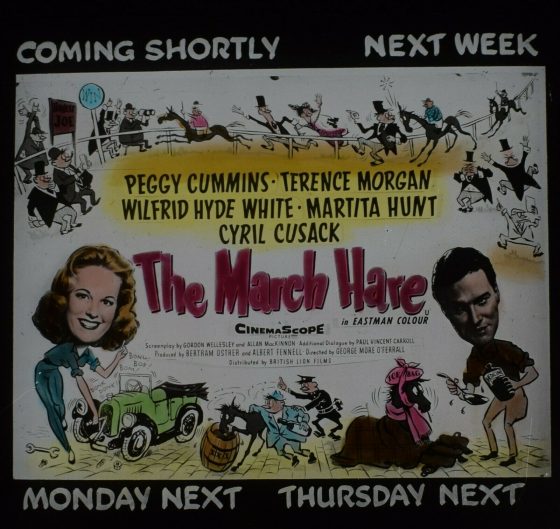
| After his horse ‘Enchanting’ fails to win at Royal Ascot race meeting, Irishman Sir Charles Hare is forced to sell his estate, Wolfshill, Kildare, to pay his debts. Charles’ aunt. Lady Anne, and her friend Colonel Keen realise that the horse was pulled by the jockey who had been bribed by Hardwick, a big bookmaker, whose own horse won the race. In the pub, horse trainer Lazy Mangan declares that he will become manager again of the stables. The Colonel and Lady Anne buy a foal at the auction of Charles’ horses. They employ Mangan to train it and intend giving it as a present to Charles when the foal matures. Mangan brings the foal to a wood where he asks the Queen of the Fairies for the magic word for the foal and rears the foal on eggs and cream. An American, Maguire, buys Charles’ estate and installs an English horse trainer. Captain Marlow, and a Cockney stablelad. When Charles is mistaken for an employee by Maguire’s daughter. Pat, he accepts a job as her groom. After they become friendly. Pat tells Charles that she is going away for two years, but she is surprised when he kisses her. Maguire imports a horse ‘Starlight’ for the Cambridgeshire, while Marlow is in league with Hardwick, the new owner of ‘Enchanting’ against whom ‘Starlight is running. Marlow tells Hardwick that he will lose a large sum if ‘Enchanting’ does not win. ‘Starlight’ beats ‘Enchanting’ in the Cambridgeshire, but the horse is disqualified after a complaint which Maguire and Lady Anne realise comes from one of the jockeys who are working with Hardwick. Charles returns from spending six months in South America. By now, the foal, named ‘The March Hare’, has matured under Mangan’s training and Lady Anne and Colonel Keen give it to him. Charles decides that someone other than the alcoholic Mangan should train the horse. Upset, Mangan tells him that he won’t have the word. The horse won’t race until he receives the fairy word and Charles relents and re-employs Mangan. Mangan calms the horse with the secret word and it wins the race. Pat appears at the racetrack after being away for two years. That night in Dublin, Charles asks her to marry him, but she refuses his offer. Mangan becomes ill and Colonel Keen is worried that he will forget the magic word, but Mangan tells him that he promised never to tell the word to anyone. The horse disappears and Mangan tries to explain that he took him to see the fairies. When he woke up the following morning the horse was gone. When the horse is found, it is ill, but it recovers. Lady Anne and Colonel Keen are concerned that the by-now teetotal Mangan is forgetting the fairy word. Keen tries to insure against Mangan’s loss of memory, but he is thrown out of the insurance company office as a crackpot. Hardwick fires an employee. Fisher, when he is told that five bets of £5,000 each and at 20/1 have been placed on ‘The March Hare’ in the Derby. Hardwick tells Marlow to return to Ireland and sabotage the horse’s chances of winning. After a misunderstanding about her having another boyfriend is cleared up, Charles asks Pat to marry him and she agrees. At the Derby, a jockey, Connor, brings a message from Maguire to say that ‘The March Hare’s’ jockey. Birch, has been injured in a car crash. With the telephone lines cut, Charles is unable to contact Maguire in Ireland about the substitute jockey. Maguire appears at the racetrack and tells Charles that he fired Connor months earlier. It proves too late to replace Connor, but despite the jockey’s attempts to hold him back, ‘The March Hare’ wins the Derby. Charles wins £250,000 on the race and tells Pat that he intends buying the estate from her father. | |
| Filmed on location in Ireland at the McGrath stables, Co Wicklow, in Wicklow town, at Glendalough, and in Dublin, and at Shepperton Studios, England |
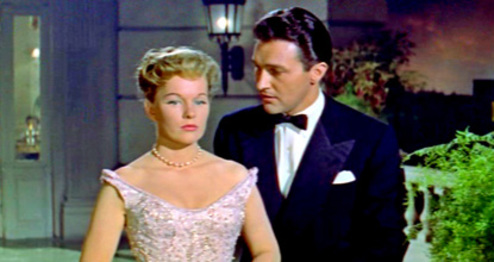
Terence Morgan and Peggy Cummins ABOVE and BELOW
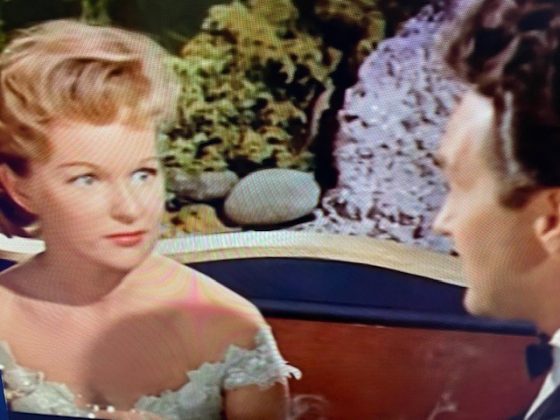
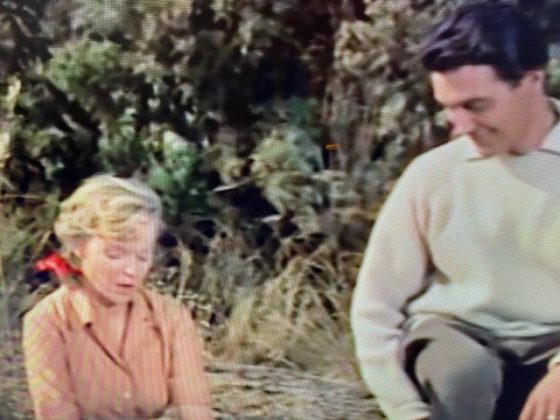
Martita Hunt also starred in this one in a quite a light hearted role – she had quite a big part in the film I am pleased to say.
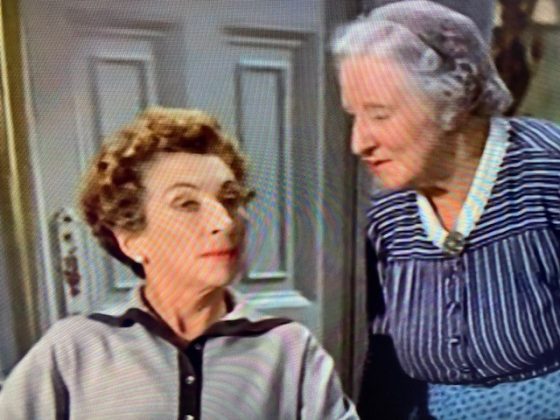
Martita Hunt ABOVE and BELOW in The March Hare 1956
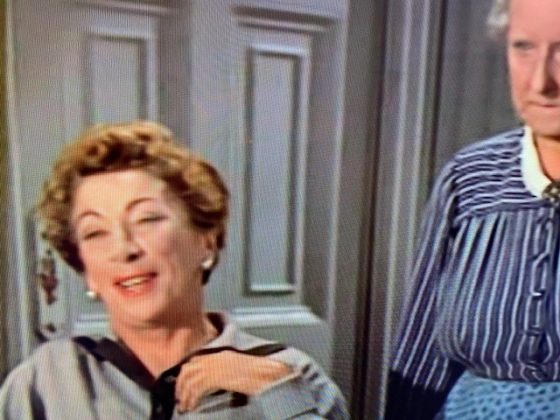
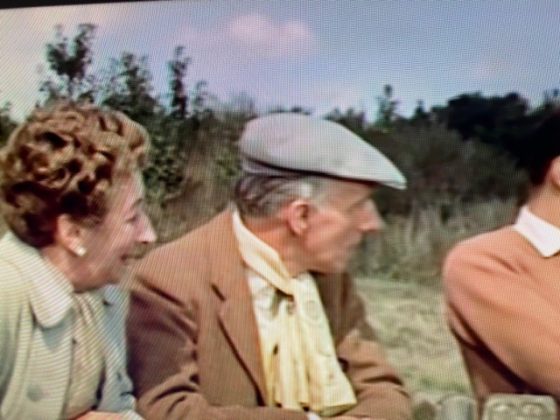
Despite appearing in over seventy films, Martita Hunt’s cinema career is dominated by one role: that of Miss Havisham in Great Expectations.
However whilst this is no doubt true, I remember her as playing Queen Eleanor of Aquitaine in the wonderful ‘The Story of Robin Hood and His Merrie Men’ from 1952 and Walt Disney – made here in England at Denham Film Studios and Burnham Beeches
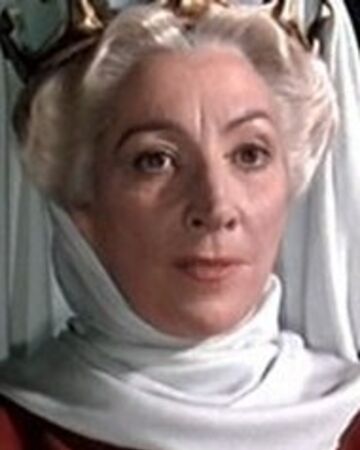
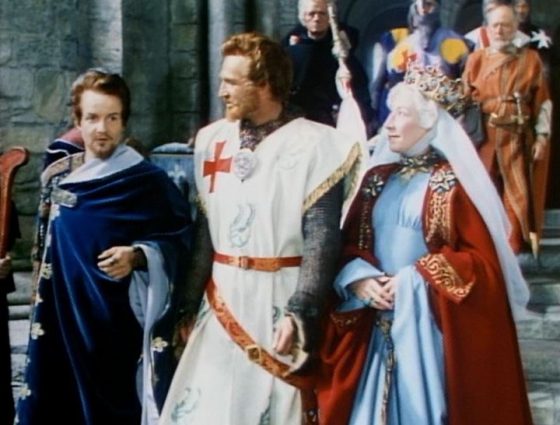
playing her sons Richard and Prince John
She was born in Buenos Aires to British parents, and was sent to England to boarding school at the age of ten. She trained for the stage and joined Liverpool Rep. She made her London debut in 1923. In 1929 she joined the Old Vic for a season, playing several leading roles including Rosalind in As You Like It and Gertrude in Hamlet opposite John Gielgud.
Although she made a short film in 1920, her film career started in earnest in 1932. Like many actors at the time, she combined filming with theatre. She built up a large portfolio of scene-stealing cameos which contrasted with the major roles she played on stage. In 1939 she played Miss Havisham in a production of Great Expectations which inspired David Lean to film the novel. When he finally did, she naturally reprised her role.
She made her Broadway debut in 1948 as The Madwoman of Chaillot and won a Tony award for her performance. By now she was firmly typecast as eccentric and posh, a role she appears to have played in real life too. Her last stage role was in 1956 opposite Alec Guinness to whom she had given voice lessons at the start of his career.
Place your comment